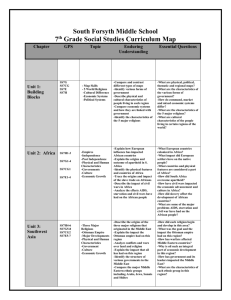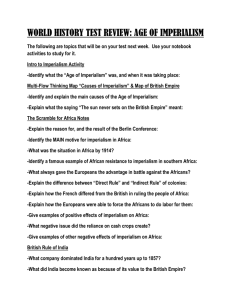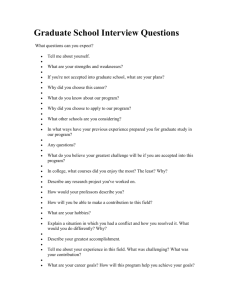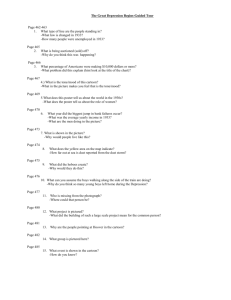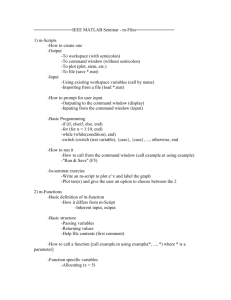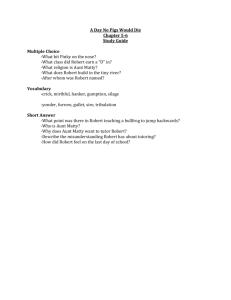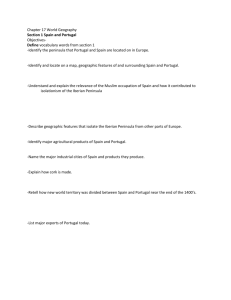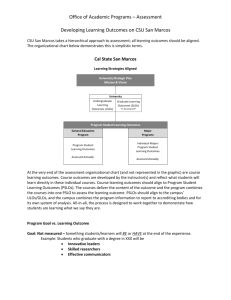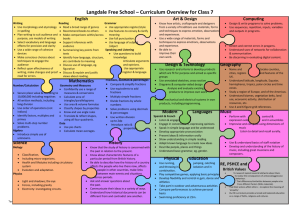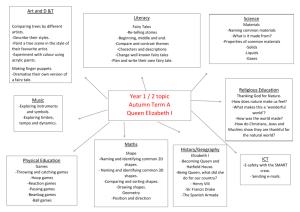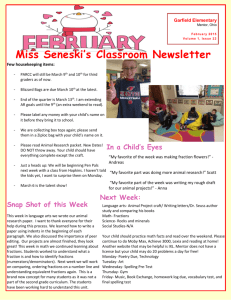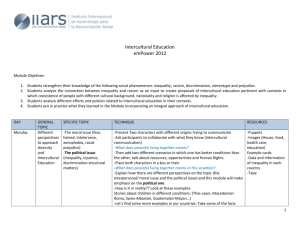English Language Arts - Walpole Public Schools
advertisement
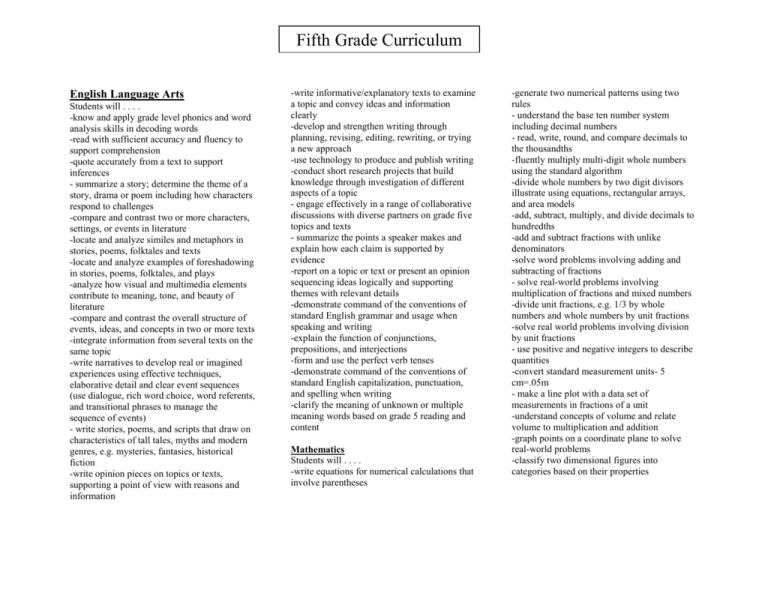
Fifth Grade Curriculum English Language Arts Students will . . . . -know and apply grade level phonics and word analysis skills in decoding words -read with sufficient accuracy and fluency to support comprehension -quote accurately from a text to support inferences - summarize a story; determine the theme of a story, drama or poem including how characters respond to challenges -compare and contrast two or more characters, settings, or events in literature -locate and analyze similes and metaphors in stories, poems, folktales and texts -locate and analyze examples of foreshadowing in stories, poems, folktales, and plays -analyze how visual and multimedia elements contribute to meaning, tone, and beauty of literature -compare and contrast the overall structure of events, ideas, and concepts in two or more texts -integrate information from several texts on the same topic -write narratives to develop real or imagined experiences using effective techniques, elaborative detail and clear event sequences (use dialogue, rich word choice, word referents, and transitional phrases to manage the sequence of events) - write stories, poems, and scripts that draw on characteristics of tall tales, myths and modern genres, e.g. mysteries, fantasies, historical fiction -write opinion pieces on topics or texts, supporting a point of view with reasons and information -write informative/explanatory texts to examine a topic and convey ideas and information clearly -develop and strengthen writing through planning, revising, editing, rewriting, or trying a new approach -use technology to produce and publish writing -conduct short research projects that build knowledge through investigation of different aspects of a topic - engage effectively in a range of collaborative discussions with diverse partners on grade five topics and texts - summarize the points a speaker makes and explain how each claim is supported by evidence -report on a topic or text or present an opinion sequencing ideas logically and supporting themes with relevant details -demonstrate command of the conventions of standard English grammar and usage when speaking and writing -explain the function of conjunctions, prepositions, and interjections -form and use the perfect verb tenses -demonstrate command of the conventions of standard English capitalization, punctuation, and spelling when writing -clarify the meaning of unknown or multiple meaning words based on grade 5 reading and content Mathematics Students will . . . . -write equations for numerical calculations that involve parentheses -generate two numerical patterns using two rules - understand the base ten number system including decimal numbers - read, write, round, and compare decimals to the thousandths -fluently multiply multi-digit whole numbers using the standard algorithm -divide whole numbers by two digit divisors illustrate using equations, rectangular arrays, and area models -add, subtract, multiply, and divide decimals to hundredths -add and subtract fractions with unlike denominators -solve word problems involving adding and subtracting of fractions - solve real-world problems involving multiplication of fractions and mixed numbers -divide unit fractions, e.g. 1/3 by whole numbers and whole numbers by unit fractions -solve real world problems involving division by unit fractions - use positive and negative integers to describe quantities -convert standard measurement units- 5 cm=.05m - make a line plot with a data set of measurements in fractions of a unit -understand concepts of volume and relate volume to multiplication and addition -graph points on a coordinate plane to solve real-world problems -classify two dimensional figures into categories based on their properties Science and Technology/Engineering Students will answer the questions . . . -What structures in plants are responsible for food production, support, water transport, reproduction, growth, and protection? - What are the stages in the plant life cycle? -How do inherited characteristics differ from characteristics that are affected by climate or environment? -What plant behaviors are impacted by the environment and gravity? - What is the process of photosynthesis, and how is it used in the food chain? - How do different soil types affect the growth of plants? -How is the solar system arranged with the sun, planets, and moons? -How does the earth rotate and affect time? -How does earth revolve and affect the calendar? -How does the sun appear to move in the course of a day? -What is a lunar eclipse? -What is a solar eclipse? -What are the phases of the moon, and why do we see the moon this way? - How can energy be transferred from one form to another? - What are the components of an electrical circuit? - What is the difference between an insulator and a conductor? - How is an electromagnet made? How is it useful? - How does light travel and what happens when it strikes an object? -Why do reflection, retraction, and absorption happen? -Why are certain materials appropriate for specific tasks? -What tools could be used to construct a given prototype? -How does a simple machine differ from a complex machine? Walpole Public Schools 135 School Street Walpole, MA 02081 Homework 45 minutes- 4 times a week Read and practice math concepts and skills each night Report Cards Issued Dec., March, and June Parent Teacher Conferences October and March MCAS English Language Arts-March Mathematics- May Science Technology and Engineering- May http://www.doe.mass.edu/mcas/ MA Current Frameworks http://www.doe.mass.edu/frameworks/current.h tml History and Social Studies Students will . . . . -investigate the pre-Columbian civilizations in the New World -trace the voyages of the 15th and 16th century European explorers -explain why the Aztec and Inca civilizations declined in the 16th century -describe the goals and extent of the Dutch settlement in New York, French settlements in Canada, and Spanish settlements in Florida, Southwest, and California -explain the relationship between the English settlers and the Native Americans -identify the major leaders and groups responsible for the founding of the original colonies -explain the reasons that the language and political principles of what became the US were shaped by English colonists -explain the causes of the establishment of slavery -identify the founders and reasons for the establishment of our educational institutions -explain the development of the colonial governments and how these contributed to the Revolutionary War -describe the major battles of the Revolution -describe the achievements of the important leaders in the early years of the US -identify and describe the events leading to the Constitutional Convention, -describe the basic political principles of American democracy -identify the rights in the Bill of Rights - describe and explain the growth of the United States to 1820
